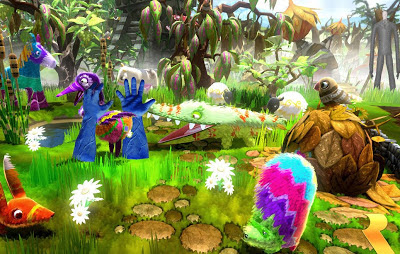The Buddhists have a lot of things right. The three marks of existence which are part of basic Buddhist doctrine are that life is suffering (or at least unsatisfying), all things are impermanent (or at least always changing), and that the "self" isn't really the "self". Ok, so maybe non-Self doctrine is a bit of a leap, but the other two at least should seem obvious to anyone paying attention. Japanese Buddhists in particular even learned to appreciate impermanence as something that gives beauty and incorporate it into their art.
I, on the other hand, have not.
I find impermanence depressing and if I see something beautiful, I want it to be preserved for as close to forever as possible. Sure, I know that eventually the universe will fade and/or God will return and end it, but in the mean time, I hate for cool stuff to disappear into history, unable to be experienced or known ever again. Rather than making me appreciate it more, I feel pressured to enjoy it before it's gone.
In this age of the internet and increasingly affordable data storage, it's easy for things to be saved. But it's also easy to create more digital content, and not all of it gets saved. There are sites like the Wayback Machine that let you view websites as they used to be, but you can't expect a tool like this to save every image and every video from every server so that you can view every website's progress and eventual demise through history. Sure, you may be able to see what Google looked like, but good luck finding that Geocities page you and your friends thought was funny that one time. With games, many can be preserved through emulation. But that doesn't preserve the full experience of playing the game on its original console. Eventually, it will be hard to find a TV old enough to have the hookups for an old console and it'll be hard to find a working console, game, and controller as well. Or consider the day when AA batteries are no longer readily available. Classic games that use internal batteries for saving have already become a problem for retro gamers. YouTube is another way that games can be partially preserved, but once again, they leave out the biggest aspect of gaming: interactivity; and YouTube itself is impermanent.
 |
Tales of Eternia Online is one game I'll never be able to play.
Its official service was only active from 2006 to 2007. |
Not being able to play original games on original consoles is one thing, but the problem of impermanence escalates when it comes to limited time services. This includes betas that close (though you probably wouldn't want to play in beta again anyway) or how playing certain games online used to be different before they patched something. But more drastically, it's when online communities die and the server is taken offline. Eventually, you won't be able to play online in the games you're currently playing; and in the grand scheme of things, it won't be very long before that happens. Already this has happened to plenty of games and there are MMOs whose worlds will never be explored again. Good luck trying to print more Pokemon Snap stickers at your local Blockbuster. I'm sure many of the Wii channels will cease to be updated now that the Wii U is coming out (not that many people use the Everybody Votes Channel much anyway). And ordering a custom sweater designed in Super Mario Sweater for Famicom? Forget about it. Just be glad someone managed to preserve BS The Legend of Zelda from its limited broadcast on the Japanese Satellaview.
But what does this mean for you as a gamer? It means you had better enjoy your games while they last, especially modern online ones which rely on some company's private server. Or, if you prefer, rather than feeling pressured to enjoy them, you can feel privileged to be enjoying them in their prime. Yours was the generation that read Nintendo Power along with major releases, played Halo online, and participated in downloadable tournaments in Mario Kart Wii. Already you have experienced things that your children never will.
So here's to impermanent gaming. Enjoy it while it lasts.





















